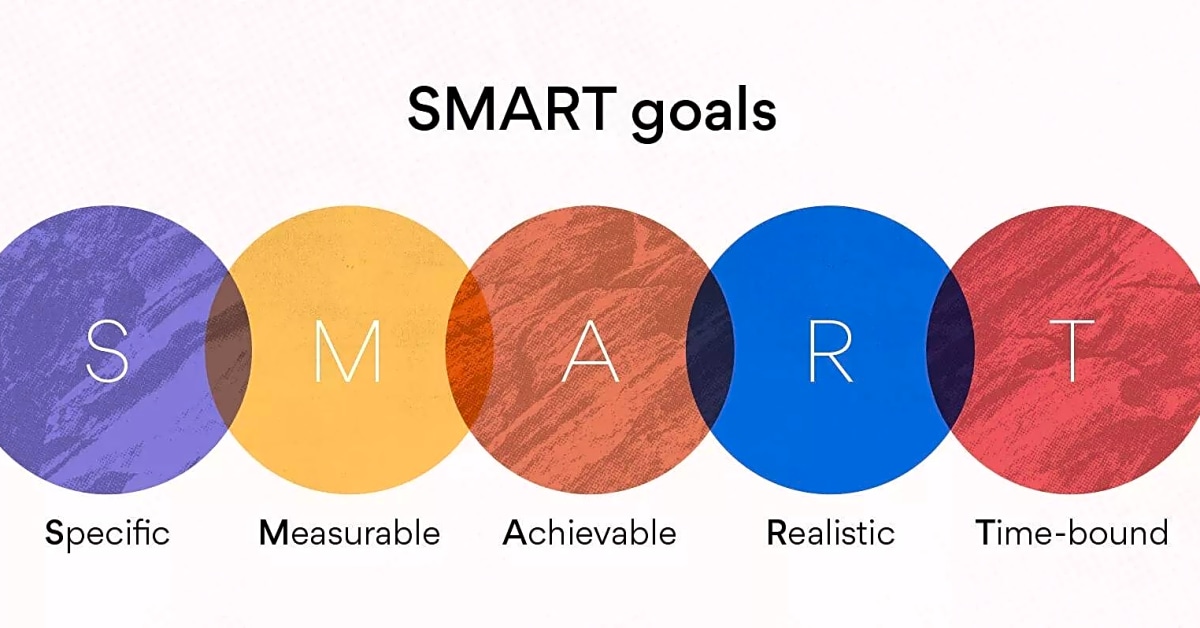How to Set SMART Goals for Your Business Strategy
 by Consultant
by Consultant

Welcome to our article on how to set SMART goals for your business strategy. As a business owner, it’s crucial to have a clear understanding of your goals and objectives in order to achieve success. However, setting vague or unrealistic goals can often lead to disappointment and hinder your progress. That’s where SMART goals come in – a framework that helps you set specific, measurable, achievable, relevant, and time-bound goals. In this article, we will delve into the importance of setting SMART goals for your business strategy and provide practical tips on how to create and implement them effectively. By the end, you’ll have a solid understanding of how to align your goals with your overall business strategy and drive your business towards success. So, let’s get started!
When it comes to improving your business strategy, setting SMART goals is essential. Not only do they provide a clear direction for your organization, but they also ensure that your team is working towards achievable and measurable objectives. In this article, we will discuss what SMART goals are, why they are important for strategic planning, and how to set them effectively.
Firstly, let’s define what SMART goals are. SMART is an acronym that stands for Specific, Measurable, Achievable, Relevant, and Time-bound. This means that when setting goals for your business strategy, they should be clearly defined, have a way to measure their progress, be realistically attainable, align with your overall objectives, and have a specific timeline for completion. For example, instead of setting a vague goal of ‘increase profits,’ a SMART goal would be ‘increase profits by 10% within the next quarter.’ This provides a specific target to aim for and a timeline for achieving it.
Setting specific goals is crucial because it provides a clear direction for your team to work towards. Without a specific target, it’s easy for employees to get lost in the day-to-day tasks and lose sight of the bigger picture. Measurable goals allow you to track progress and make adjustments as needed. This also helps to keep your team motivated and focused on achieving the goal.
Achievable goals are important because they need to be realistic and attainable within the given timeframe. Setting unrealistic goals can lead to frustration and demotivation within the team. It’s essential to set goals that challenge your team but are still achievable with effort and hard work.
Relevant goals tie into your overall business objectives. They should align with your company’s mission and vision and contribute to the overall success of your organization. This ensures that your team is working towards goals that will have a positive impact on your business.
Finally, time-bound goals provide a specific timeline for completion. This creates a sense of urgency and helps to keep your team on track and motivated. It also allows for better planning and allocation of resources.
In conclusion, setting SMART goals for your business strategy is crucial for success. They provide a clear direction, keep your team motivated, and ensure that you are working towards achievable and measurable objectives. Remember to make your goals Specific, Measurable, Achievable, Relevant, and Time-bound to maximize their effectiveness.
Why SMART Goals are Important for Strategic Planning
SMART goals are crucial for strategic planning because they help ensure that your organization is working towards the same objectives. Without clearly defined goals, different departments or individuals may have conflicting priorities and work towards different outcomes. This can result in wasted resources and ineffective strategies.
Additionally, SMART goals provide a way to measure progress and make adjustments as needed, ensuring that your business strategy stays on track.
How to Set Effective SMART Goals
Now that you understand the importance of SMART goals, let’s discuss how to set them effectively.
Firstly, make sure that your goals are specific and clearly defined. This means avoiding vague language and setting measurable targets.
Next, ensure that your goals are achievable. While it’s important to set ambitious goals, they should still be realistically attainable. Otherwise, your team may become demotivated if they feel like the goal is impossible to reach.
It’s also important to ensure that your goals are relevant to your overall business objectives. Don’t waste time and resources on goals that don’t align with your company’s vision.
Finally, set a timeline for each goal to ensure that there is a sense of urgency and accountability in achieving them.
In conclusion, setting SMART goals is crucial for improving your business strategy and achieving success. By following the SMART framework, you can ensure that your goals are specific, measurable, achievable, relevant, and time-bound. This will help keep your team focused and working towards the same objectives, ultimately leading to better results for your organization.
Related Posts
Learn how to set effective SMART goals for your business strategy and strategic planning process.
Business Consulting Articles
- About cookies and cookie consent
- Advisory Consulting
- Business Growth Consulting | Unlocking Your Business Potential
- Business Process Consulting Services Can Improve Your Business
- Organizational Development Consultant
- Privacy Policy
- Strategic Advisory Services Explained: A Comprehensive Guide
- Top 100 Advisory Consulting Terminology
- Top 100 AI as a Service (AIaaS) Terminology
- Top 100 Business Consulting Terminology
- Top 100 Executive Coaching Terminology
- Top 100 Operation Management Terminology
- Top Advisory Consulting Terminology
- Top AI as a Service (AIaaS) Terminology
- Top Business Consulting Terminology
- Top Executive Coaching Terminology
- Top Operation Management Terminology
- AI Generated Q&As
- Benefits of advisory consulting
- Blog
- Boutique Firms
- Budgeting
- Business advisory consulting
- Business Consulting
- Business consulting services
- Business Management
- Business planning
- Case studies on specific industries
- CEO
- CFO
- Change management
- CIO
- Client success stories
- CMO
- Collaboration and partnerships
- Consulting
- COO
- Creative thinking
- Critical thinking skills
- Culture and values
- Executive Coaching
- Expert guidance and insights
- Financial advisory consulting
- Financial analysis
- Financial Consulting
- Financial consulting
- Financial consulting services
- Financial strategies
- Fractional Executive
- Goal setting
- Human Resource Management
- Increased efficiency and profitability
- Industry knowledge and experience
- Investing
- IT Consulting
- Leadership and management
- Leadership styles
- Management Consulting
- Management Consulting
- Market analysis
- Market analysis
- Marketing consulting
- Marketing strategies
- Marketing strategies
- Methodologies
- Operational strategies
- Organizational structure
- Process improvement
- Professional qualifications and certifications
- Retirement planning
- Risk analysis
- Risk management and compliance
- Sales techniques
- Scaling and expansion
- Strategic consulting
- Strategic foresight
- Team diversity and collaboration
- Technology advisory consulting
- Technology consulting services
- Technology solutions
- Testimonials from satisfied clients
- Tier 1 Firms
- Tier 2 Firms
- Vision and direction
- What is Advisory?
- What is Consulting?
